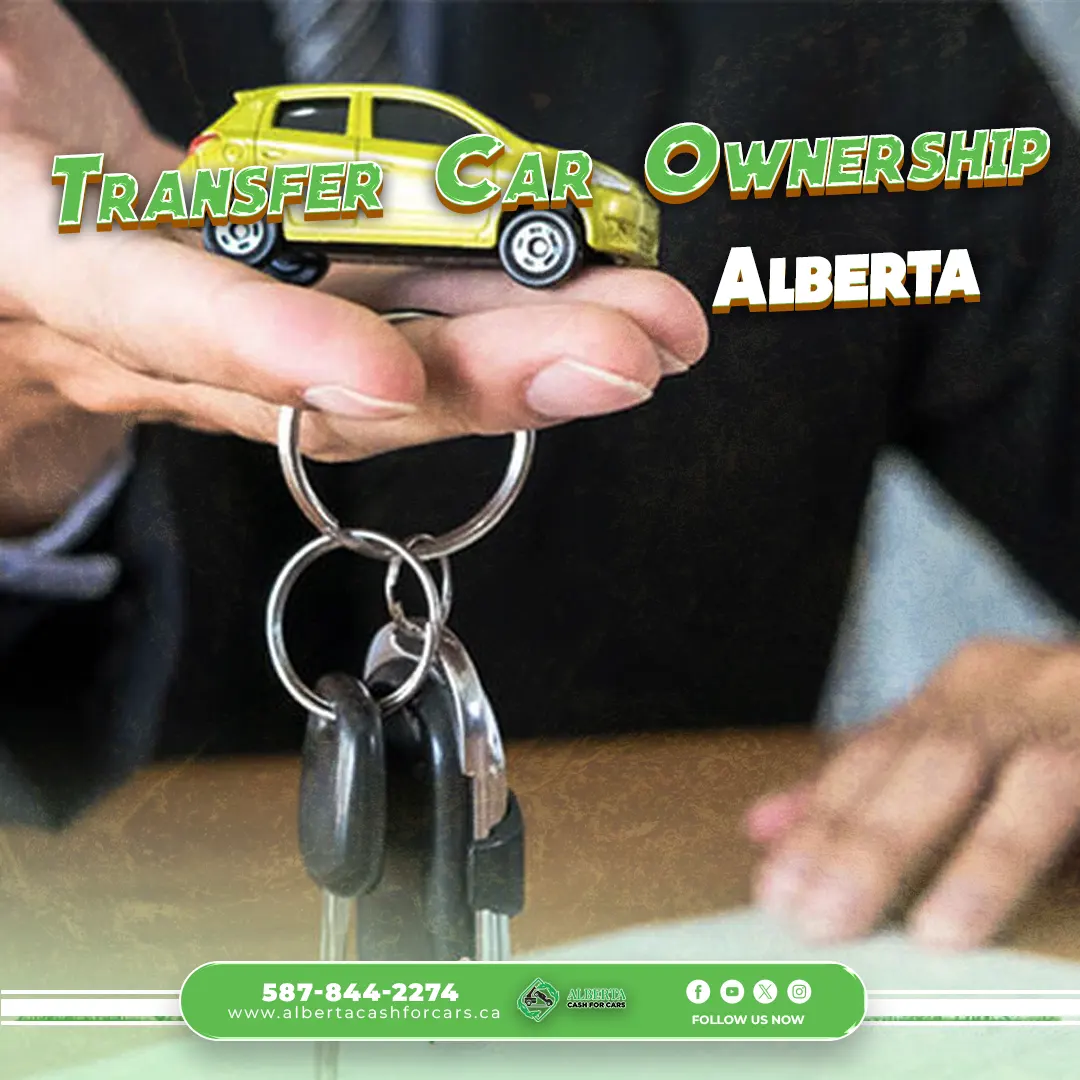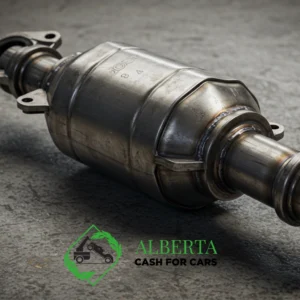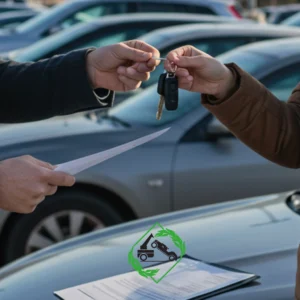Selling, gifting, or inheriting a used car requires legally transferring ownership by processing new title and registration documentation. While often portrayed casually in movies and TV shows, the legal procedures around securely conveying vehicle ownership are rigorously defined by motor vehicle departments to prevent fraud and theft. Skipping steps or paperwork gaps leaves sellers and buyers alike vulnerable down the road.
This blog post of Cash for cars Calgary will comprehensively explain the required procedures for legal transfer car ownership alberta in typical scenarios like private sales, gifts to family members, and inheriting a vehicle, along with guidance for special cases. By methodically completing each document and following notification procedures, both parties can confidently close transactions knowing the car’s ownership has cleanly changed hands.
No Hassle, Just Cash — Book Your Free Pickup or Quote Today!
Documenting Private Vehicle Sales with Bill of Sale & Title Transfer
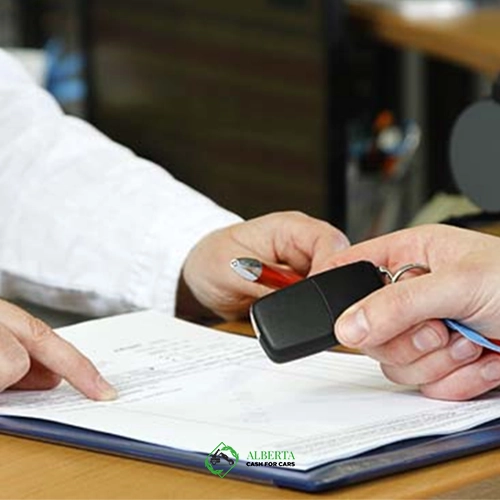
For private used car sales, the transfer car ownership Alberta process begins before money changes hands. To initiate the steps:
Ensuring Smooth Title Transfer
The seller provides a bill of sale document, signed by both parties, detailing the vehicle’s description, sales price, date, and parties involved. This legally documents the ownership transfer agreement for the DMV paperwork.
The seller signs over and hands off the existing title to the buyer, with the “Transfer of Title by Seller” section completed, including the odometer reading. This deed proves legal conveyance.
The buyer verifies the VIN/model details match the title and physical vehicle before finalizing the purchase. This prevents mismatches. Payment is then made safely once both the bill of sale record and title are secured.
Navigating DMV Procedures
Following payment, the buyer must finish transfer car ownership Alberta the title, and registration into their name through the DMV within 1-2 weeks. This typically entails:
- Completing the “Transfer of Title by Buyer” section on the back of the title.
- Filing a title application and registration forms with the DMV, including the old title showing the chain of ownership.
- Providing identification documents and insurance verification.
- Paying requisite registration taxes and title transfer fees.
Finally, the DMV issues a new title in the buyer’s name, completing the ownership conveyance. The buyer can now legally drive the car.
Handle Tax Exemptions & Title Transfers
While similar, gifting a vehicle to a family member involves claiming applicable gift tax exemptions:
- The giver records the gift by completing a bill of sale showing a $0 payment and a relationship to the recipient. This documents the gift status for tax exemption.
- On the title transfer sections, the family relationship gets noted again to evidence the gift rather than the sale.
- The recipient files documents with the DMV to issue a new title in their name, including the $0 bill of sale proving exempt gift status.
- Depending on state laws, a nominal gift tax may apply for non-family members receiving a gifted vehicle.
- Doing paperwork correctly classifies the vehicle gift for tax purposes and transfers ownership fully into the recipient’s name for their legal usage going forward.
Inheriting a Car Through Probate Court Process
Finally, claiming a vehicle inherited from a deceased relative or friend also follows formal steps:
Securing Inheritance through Documentation
If the named beneficiary is in the will, obtain court-certified copies of the will and death certificate to verify the inheritance claim. Apply for a new title through the probate court as next of kin, presenting the inheritance paper trail. Once the court transfers the title from the deceased’s estate into your name, file documentation with the DMV as the new owner. Lastly, pay any inheritance taxes if applicable before taking ownership.
While emotional, systematically obtaining proper probate court approval ensures the car rightfully transfers possession rather than risks sitting in limbo.
Special Cases Require Extra DMV Guidance
Less common transfer car ownership Alberta scenarios like dividing co-owner shares after a divorce or seller financing sales through installment plans require contacting the DMV ahead for specific guidance on properly documenting special circumstances. Finding out the required steps beforehand prevents paperwork hassles down the road.
Read Also: The Best Tips for Selling Your Car to a Relative
Proper Transfers Protect Both Parties
While mundane, meticulously logging VINs, and signatures, and following each transfer procedure protect against future liability, financial risks, and legal headaches for both sellers and buyers. Keep all related records indefinitely for documentation. Transferring ownership may take patience, but methodically following protocols grants peace of mind a major asset has securely changed hands.
Insurance Considerations During Ownership Transfers
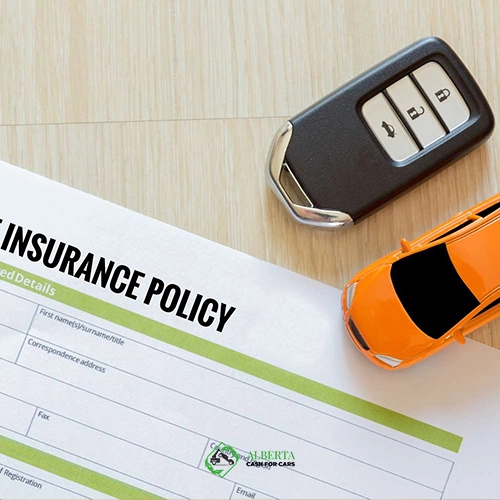
- The seller must contact their auto insurance company to remove the sold vehicle from their policy to avoid charges. Most companies require notification of the sale immediately.
- The buyer should add the newly acquired car to their insurance policy before driving it. Gaps in insurance coverage can risk fines. Inform your insurer of the change.
- For private sales, buyers and sellers should both notify their respective banks/lenders if they hold loans on the vehicle to record the change.
- Sellers may choose to provide buyers with maintenance records or service history for transparency. This builds trust.
- Buyers should note any dents, scratches, or defects during a thorough inspection before finalizing the purchase.
Following Safety Precautions in Private Transactions
- Conducting transactions in daylight hours and public places enhances safety for potentially large cash exchanges.
- Bring along a trusted friend or family member for visibility and as a neutral transaction witness.
- Reference verified seller/buyer identities against IDs during the paperwork signing to prevent fraud.
- Remain calm yet alert if any aspects seem suspicious, and don’t hesitate to pause or walk away.
- Install new locks, keys, and alarm codes when ownership changes hands for security.
In the end, diligently completing each formal transfer step protects against significant financial, legal, and safety risks for both buyers and sellers during vehicle ownership transfers.
Differences Between Gifting and Selling a Vehicle
When it comes to gifting a vehicle in Alberta, the process may seem similar to selling one, but there are some key differences to keep in mind. Whether you’re giving a car to a family member or selling it privately, understanding these distinctions is crucial.
Payment
Selling a car involves an exchange of money, where both parties agree on a purchase price. In contrast, gifting a vehicle in Alberta means there’s no financial transaction. The bill of sale would list the amount as $0, indicating that the vehicle is a gift.
Tax Implications
One of the significant differences is how taxes are applied. When you sell a vehicle, the buyer usually pays taxes based on the sale price. However, when gifting a vehicle in Alberta, the recipient may qualify for tax exemptions, especially if the vehicle is being transferred to a close family member.
Required Documentation
Both selling and gifting require proper documentation, including the bill of sale and title transfer. However, when gifting a vehicle in Alberta, additional information like proof of the relationship (if applicable) may be necessary to claim tax exemptions.
Insurance Considerations
When selling, the new owner needs to get insurance. For gifting a vehicle in Alberta, the process is the same, but you may also need to notify your insurer about the gift transaction.
Understanding Temporary Permits for Buyers During Vehicle Ownership Transfers
When purchasing a vehicle in Alberta, buyers may need a temporary permit to legally drive it before completing the full transfer process. If you’re planning to transfer car ownership to family member Alberta, the temporary permit ensures the new owner can use the vehicle legally while waiting to finalize the paperwork.
Here’s how temporary permits work:
What is a Temporary Permit?
A temporary permit allows a buyer to operate the vehicle for a limited time until the registration and title transfer are completed. This is especially useful if there’s a delay in getting the required documents from the DMV.
How to Apply for a Temporary Permit?
To apply for a temporary permit, the new owner or buyer must provide proof of insurance and a bill of sale. When you transfer car ownership to family member Alberta, be sure to include the relationship details on the bill of sale, as this might help with tax exemptions during registration.
Duration and Limitations
Temporary permits are usually valid for 14 to 30 days, depending on the situation. They give the buyer time to finish paperwork, especially in cases where transfer car ownership to family member Alberta involves more steps, like verifying the family relationship.
Driving Restrictions
The permit is only valid within Alberta and is meant for personal use, not commercial purposes. When you transfer car ownership to family member Alberta, it’s important to ensure that all documents are in order before the permit expires.
Temporary permits simplify vehicle transfers and allow buyers to legally drive while waiting to complete the full ownership transfer.
Common Mistakes to Avoid During Ownership Transfers
Not Completing the Bill of Sale Properly
One of the most common errors made during a Transfer Car Ownership Alberta is the failure to complete the bill of sale correctly. This document is crucial as it legally documents the transaction. Both the buyer and seller must sign it, and it should include the vehicle’s details, including the VIN, make, model, and sale price. Incomplete or incorrect information can delay the transfer process and cause potential legal complications at a later stage.
Ignoring the Odometer Disclosure
Another common mistake is not including the correct odometer reading when completing the Transfer Car Ownership Alberta. The odometer reading is necessary for the title transfer, as it verifies the vehicle’s mileage. Failing to document this accurately can result in complications with the buyer’s registration and possible fraud concerns.
Overlooking Insurance and Registration Updates
Once the ownership transfer is complete, it’s essential to update the insurance policy and registration. It is common for sellers to forget removing the car from their policy, leaving them liable for any incidents involving the vehicle. Buyers, on the other hand, may fail to register the vehicle promptly. Both actions are necessary for a smooth Transfer Car Ownership Alberta and to ensure the vehicle is legally driven.
Not Verifying Title and Ownership Status
Before completing a Transfer Car Ownership Alberta, it’s important to confirm that the title is clear. If there’s an existing lien or unpaid taxes, the transfer cannot proceed smoothly. Buyers and sellers should always status of the title in advance to avoid surprises.
What to Do if Ownership Documents Are Lost or Missing
Losing your vehicle’s ownership documents can be stressful, particularly when dealing with processes like selling, transferring, or gifting a car in Alberta. Fortunately, there are steps to recover or replace these critical documents to ensure a smooth transaction.
- Contact the DMV: The first step is contact the local DMV or registry office. They can guide you through applying for a replacement title. Be sure to bring the necessary identification, proof of insurance, and details about the vehicle, such as its VIN.
- Complete the Necessary Forms: Most jurisdictions require you to fill out specific forms to request a duplicate title. In Alberta, this may include an affidavit confirming the loss and an application for a replacement title. Ensure you provide accurate information to avoid delays.
- Address Outstanding Liens: If there’s a lien on the vehicle, you’ll need permission from the lienholder to proceed. Make sure all financial obligations are settled before requesting a new title.
- Plan Ahead for Gifting a Car in Alberta: When gifting a car in Alberta, it is important to have a clear title. Once you’ve replaced the lost documents, follow the standard procedure of completing a bill of sale, noting the $0 amount for tax exemption, and submitting the paperwork to the DMV.
By taking these steps promptly, you can replace lost ownership documents and proceed confidently, whether selling, transferring, or gifting a car in Alberta.
Conclusion
On paper, transfer car ownership Alberta sounds straightforward – complete some forms and file with the DMV. But in reality, myriad details exist in each state surrounding title transfers, taxes, paperwork, and gift conditions that must be followed precisely to prevent ownership uncertainties. By thoroughly understanding requirements and diligently completing every identification, document, signature, and notification, both parties in sales or inheritances ensure the vehicle legally changes hands. While dull, proper transfer car ownership Alberta prevents major headaches and safely closes transactions.

